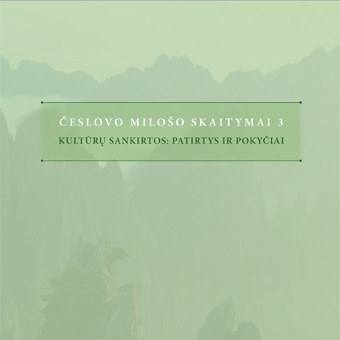Šiuolaikinės graikų literatūros recepcija Lietuvoje
Reception of Contemporary Greek Literature in Lithuania
Author(s): Aurelija MykolaitytėSubject(s): Literary Texts
Published by: Vytauto Didžiojo Universitetas
Keywords: reception; contemporary greek literature; cultural communication; translations; interpretations; recepcija; šiuolaikinė graikų literatūra; kultūrinė komunikacija; vertimai; interpretacijos
Summary/Abstract: Contemporary Greek literature in Lithuania is yet semantically unclear horizon which needs to be understood. This happens not so much as trying to find typological and genetic relations but as reflecting the otherness. This kind of reflection may be called primal stage of dialogue when the other is first of all understood as “alien”, “remote”. This kind of dialogue is fruitful because it enriches culture with wholly new texts and it motivates creativity. The biggest attention is drawn to those authors who have worldwide recognition, especially widely published Nikos Kazantzakis; he may be called the best representative of contemporary Greek literature. On the other hand, there are clear signs that we give in to common market demands, i.e. to translate books that are popular in Europe nowadays; it does probably make no difference what is author’s nationality, the main thing is how much one or other author is popular. Both, contemporary Greek prose and poetry are little known and dramaturgy remains absolutely unknown. The other side of the shield is that there are some signs of closer cultural communication. Greek literature is not very alien in the cultural Lithuanian context. In this reflection field also fall these Greek literature works that are one way or another connected to common experience. Namely these works transfer not what is “alien” but what is “close”, “similar” and it suggests that texts are “polyglot”. What is exceptional that having in mind Lithuanians and Greeks cultural relations, challenges of globalization are also reflected, i.e. how to remain own culture and not to deny the other. Translations of contemporary Greek literature have become not only the way to get acquainted with other culture, but also as a means of being oneself and saving your own language in this polyglot world.
Journal: Česlovo Milošo skaitymai
- Issue Year: 2010
- Issue No: 3
- Page Range: 161-168
- Page Count: 8
- Language: Lithuanian

